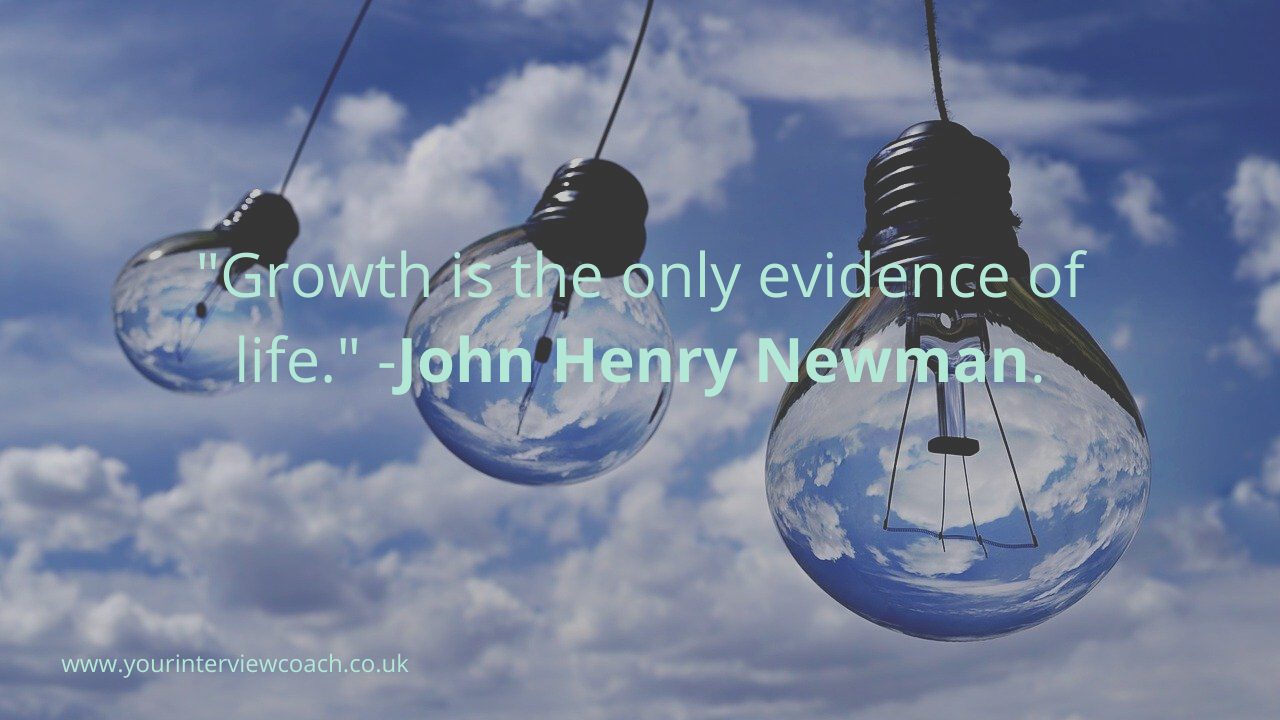Is it too late to change your career at 50?
The simple answer is no. It’s never too late to change your career. However, before you jump, or quit your job there are some things to consider before changing your career at 50.
If you’re considering changing your career in your 50s, you will have a wealth of experiences, skills, and competencies to take to the next employer and this will give you lots of options to explore.
In a fast-paced jobs market and ever-changing climate, it’s good to have options. There is also a real need to be highly adaptable in these challenging times. The more experience and skills you have the more options and opportunities are open to you.
Why consider changing your career in your 50s?
First, it’s important to think about your reasons for changing your career in your 50s? This will identify your motives and help you decide on the right course of action and the right career choices:
- Promotion or progression
- Change of sector or industry
- Increase in salary
- De-motivation in your current job
- At risk of redundancy
- Working relationships have gone stale
- Just fancy a change
Understanding the reasons for changing your career in your 50s will help you prioritise your needs. If you are looking to increase your salary, for example, then you may need to be willing to commute or commit to long hours or relocate or re-train potentially. All these things will determine where you look and what you need to do.
Skills analysis
At this stage of your career, you will have a long list of valuable and probably varied experiences, knowledge, and skills to transfer to the next employer. Take the time to map out all that you can offer. Go into as much detail as possible at the start of this process and identify experiences that you have particularly enjoyed.
Look at conducting a SWOT analysis which will enable you to see the full picture.
Strengths: Write down all your experiences, skills, knowledge, qualifications, and the resources you have available (money, time, equipment, car, home office, computer, mobile phone, garden, workshop, software packages, etc.) Don’t forget to factor in all the things you enjoy doing and are good at. You may even explore converting your passions into profits by starting your own business.
Weaknesses: We prefer to reframe ‘weaknesses’ and consider these to be areas for improvement or development. These are opportunities to develop existing skills and learn some new ones. Review your technical skills, behavioural competencies, and knowledge gaps.
Opportunities: This could be a reference to the external jobs market. Research what’s going on in your sector and industry. Keep updated with projects, trends, the economy, environmental issues, politics, etc. We are currently in the middle of the worst health crisis and potentially economic downturn however, there are still opportunities to explore.
Threats: Again, this section could be looking at the external market and what’s impacting the jobs market. We are in unprecedented times currently with the developing situation with the Coronavirus and even the experts don’t know the full impact and aftermath of this devastating condition. Keep reading the articles and news in your sectors.
Download our SWOT analysis template: SWOT Analysis and resources
Research
Once you have a really good idea of what you offer the next employer, it’s time to research! Start by mapping out the location or locations you would like to work. If you have decided the commute into the city is not for you, then you already have the location mapped out. Identify the companies in this area and sectors and start reviewing their websites and career pages. Consider the current work climate as this will be an indication, whether it’s the right time to make a move. Ideally, you’d like to move into a market that’s growing.
In our current climate, there are many industries that have closed their doors at moment and only time will tell the extent of the damage Coronavirus will cause. However, there are still businesses operating during these troubled times. We still need our infrastructure to be able to survive and deliver much-needed medical equipment, medicines, food, utilities, water and we need transport systems operating to get our key workers to where they are needed.
Motivation
Before you jump ship, consider all the activities and tasks you really enjoy. Consider the nature of the work. What is your ideal environment? What type of people do you want to work with? Are they career orientated or fun or professional or creative? The more factors you consider, the more you’ll be able to identify the right opportunities.
If salary or promotional prospects are not your priority, then you may be able to focus more on doing something interesting. If money isn’t your driver then you could even explore converting hobbies and passions to profit.
Ageism
Having coached thousands of people over the years, this is one of the common topics of conversations.
Will my age be a problem or barrier?
Now, there are laws to protect against ageism however unfortunately, it does still happen. The research demonstrates that it’s reported more when changing careers in your 50s.
Employers and anyone involved in the hiring process should not use any of the Protected Characteristics to make decisions.
Here are the characteristics:
- Age,
- Disability,
- Gender reassignment,
- Marriage and civil partnership,
- Pregnancy and maternity,
- Race,
- Religion or belief,
- Sex,
- Sexual orientation.
Diversity
Thankfully, there are lots of companies embracing diversity in the workplace. These companies understand and appreciate that truly embracing diversity is a source of innovation, creativity, and competitive advantage.
It’s heartening to know that there are good companies out there that want to create diverse workplaces and they aren’t just doing it to follow the rules. They actually understand the benefits of multi-cultural organizations.
Instead of ‘thinking outside of the box’, Diversity is like ‘thinking outside many boxes’.
Salary and status
When changing your career in your 50s, something to consider carefully is whether the salary and status in the job are important.
If you have held a management position then ask yourself what you have enjoyed about being a manager.
- If you enjoyed the autonomy or challenge of being a manager? How can you replicate it in the next career?
- If you didn’t enjoy the responsibility of managing people, then taking a lower-level position or grade may work well.
It’s always good to ask yourself the reasons for enjoying a particular responsibility or not enjoying it. Then you can figure out how to work with this motivator or demotivator.
This will make your decision-making very powerful and there’s a high chance you will be aligned to your career values. So, the answer to the question “Is it too late to change career in your 50s?” No, it’s definitely not too late. And you have lots to offer both employment and self-employment.
Of course, you might decide it’s not the right time to make such an important move and stay in your job. If you decide to stay in your job, then start making the very most of the opportunities in-house and always invest in your continuous development plan.

GROW model of coaching
Let me mention the GROW model of coaching. It’s a traditional model to add some structure to coaching sessions.
GROW; Goal, Reality, Options, Opportunities, Obstacles and a Way Forward.
Apparently, no-one can claim to be the sole inventor of the model, although, thought-leaders and writers Alan Fine and Graham Alexander, along with former racing car champion John Whitmore made significant contributions to the contemporary model, which was largely developed during the 1980s and 1990s.
Goal
This model relies on someone having some ideas of what they want to do. However, a coach can start to ask you questions to understand your motivators, strengths, experiences, and talk about your lifestyle.
Therefore, it’s important to conduct the skills analysis or SWOT analysis before starting to put together a well-formed goal.
Well-formed outcomes are an NLP process of creating goals. It’s like the SMART goal-setting process. Specific, Measurable, Accurate, Realistic, and Timely.
The important part of goal setting is that it inspires, excites, challenges, and is written positively.
Reality
At this stage of the coaching, it’s good to have a ‘reality’ check. Where are you now in relation to your goal? What do you need to do, be or have to achieve this goal? Do you need additional qualifications or training? How much money and time will this additional training take? What resources do I have available to support my goals now?
Options, Opportunities, and Obstacles
This is where you can start exploring all the options and opportunities available. Where can you find jobs, or clients, or like-minded people? Who can help me achieve my goals?
It may seem negative to start talking about obstacles however, life happens when you are making plans. It’s good to understand the potential barriers.
This stage of the process is not about thinking or making up lots of problems. It’s just about being aware of things that might get in the way and considering possible solutions ahead of them being a problem. Think about existing commitments, or family, or time and money aspects.
Way Forward
The final stage of the process is when you start to commit and start putting together an action plan.
By this stage, you know your options and opportunities. You have conducted further research on these options and you’re in a good place to understand what’s next.
If you have a challenging goal, start with small steps and bigger milestones to work towards. It’s great to be ambitious.
Summary
Considering changing your career at 50, is an important decision. It can also be an exciting time.
I don’t know about you, but I love the act of planning. I love mind mapping, exploring, and researching new ideas.
It’s fairly common to get a little restless when you hit certain age milestones. Having time at home during lockdowns has given many of us time to think about what’s working and what needs changing. It’s a great time to consider what you really want.
Hopefully, I’ve given you some food for thought and even some tools to take away and think through what you want to do next.


Recent Comments